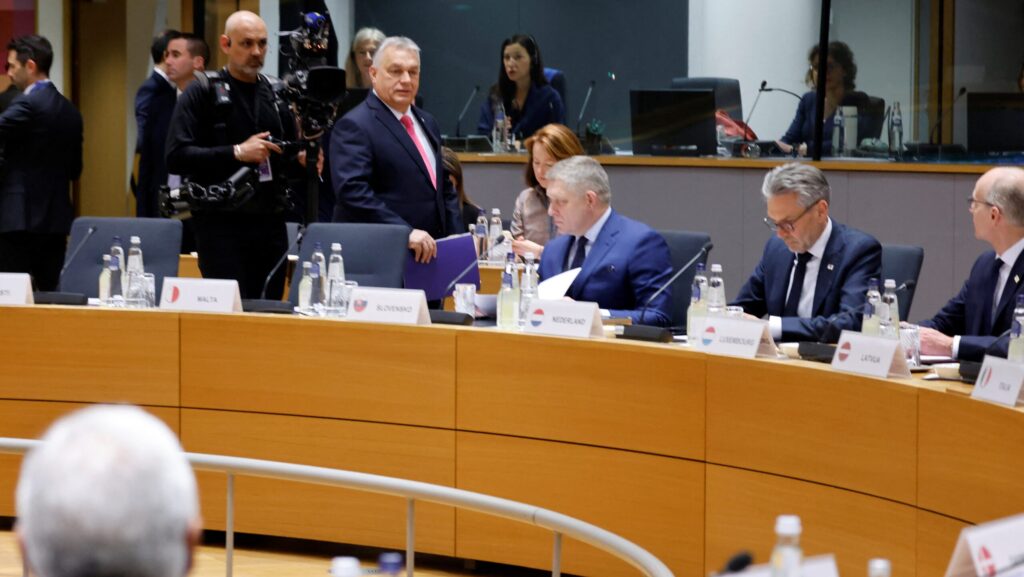
On his way to Thursday’s EU summit, Hungarian Prime Minister Viktor Orbán stated in an interview that the European Union lacks the strength to impose its vision on the war in Ukraine. ‘The EU is isolated,’ he added, emphasizing that Brussels stands alone on the global stage with its pro-war stance.
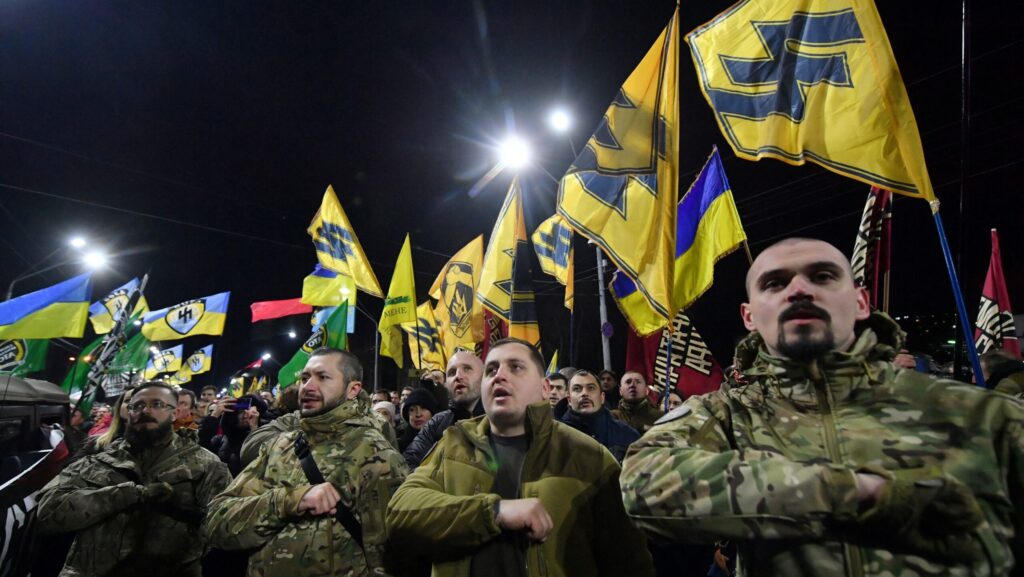
Alan J Kuperman, in a rare opinion piece published by The Hill, breaks with the Western narrative on the causes of the war in Ukraine, acknowledging that Donald Trump is right about most of the factors behind the conflict. This ultimately means Hungary was right as well, as the Hungarian government’s position on the war closely aligns with that of the US president.
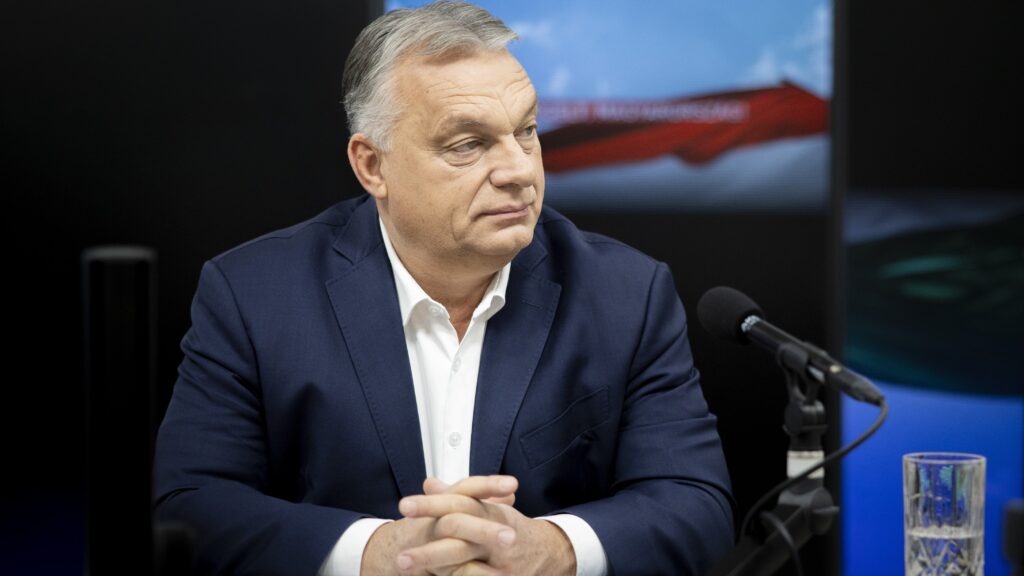
In a recent video posted on X, Hungarian Prime Minister Viktor Orbán outlined the financial burden the war in Ukraine has placed on Hungary and estimated the annual cost per household if Kyiv were to join the European Union. He urged Hungarians to make their voices heard, referring to the public vote initiated by the government on Ukraine’s EU accession.
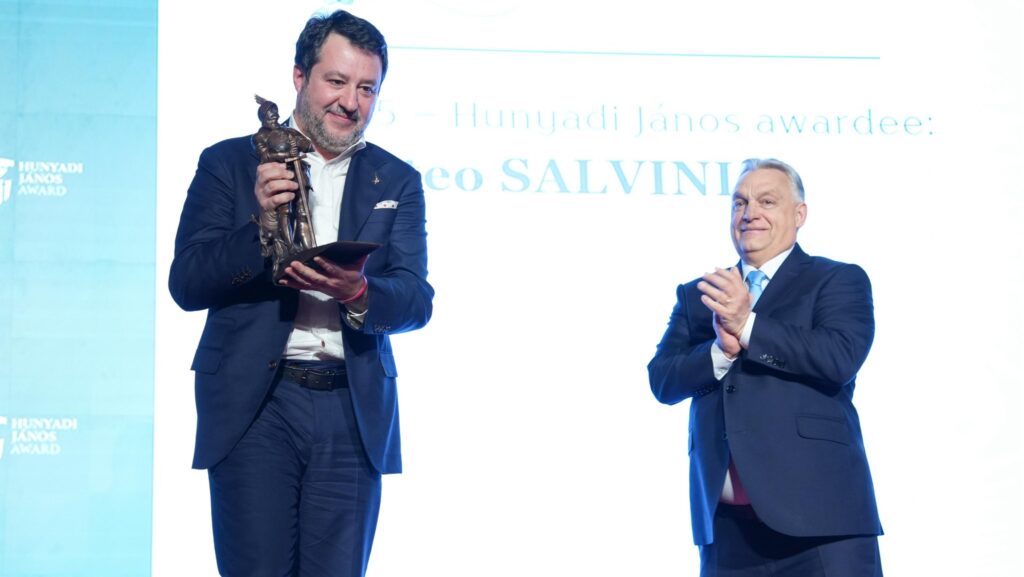
Italian Deputy Prime Minister Matteo Salvini was awarded the Hunyadi János Award by the Foundation for a Civic Hungary on Wednesday, with the honour presented by Hungarian prime minister Viktor Orbán. In his speech at the ceremony in Brussels, Orbán urged patriotic forces to reclaim the sovereignty of nation-states, which he argued had been illegally confiscated by the European Union in recent years.
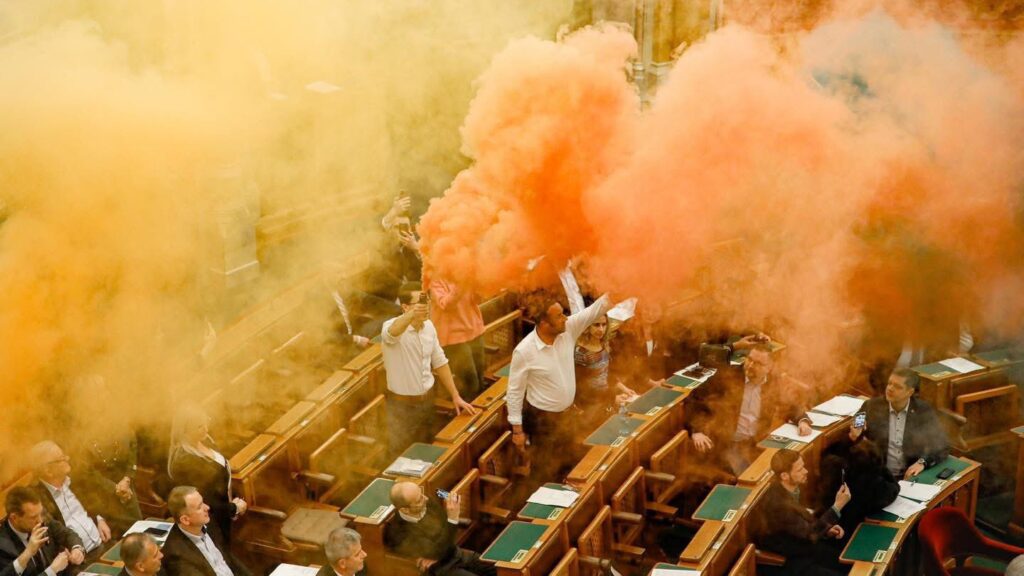
Chaos erupted in the Hungarian Parliament on Tuesday after opposition MPs ignited smoke flares in protest against the ban on the Pride march. The events bore a striking resemblance to those that unfolded in Serbia just weeks earlier, raising suspicions of a coordinated effort to destabilize right-wing governments in the region.
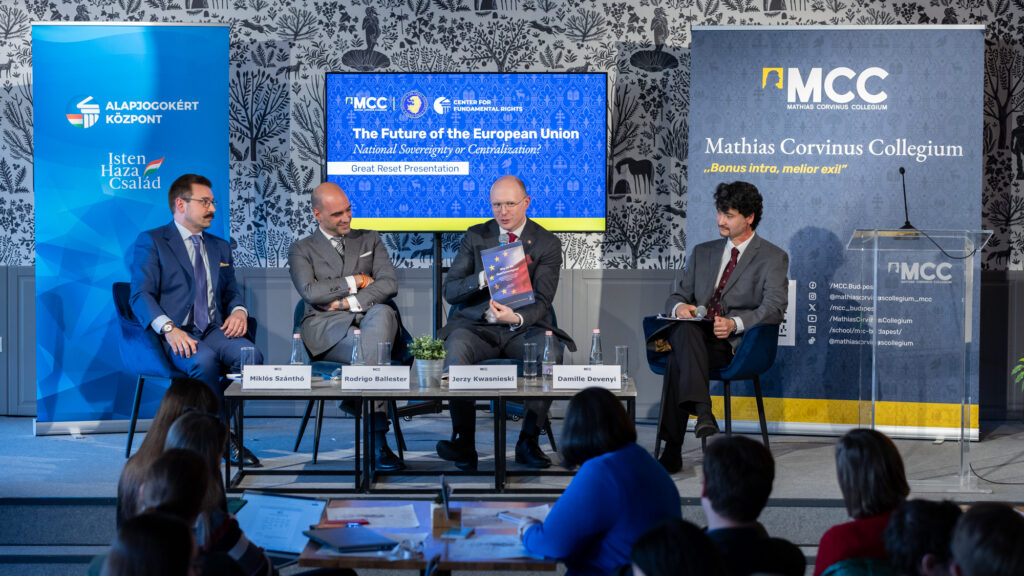
‘The current course [of the EU] leads straight to disintegration,’ Balázs Orbán pointed out in his keynote address at an event at Mathias Corvinus Collegium (MCC) in Budapest, focusing on the recently published joint report by MCC and the Polish Ordo Iuris Institute on the urgent need for EU reform. Orbán’s speech was followed by a panel discussion featuring the report’s authors, Jerzy Kwaśniewski of Ordo Iuris and Rodrigo Ballester of MCC, alongside Director General of the Center for Fundamental Rights Miklós Szánthó.
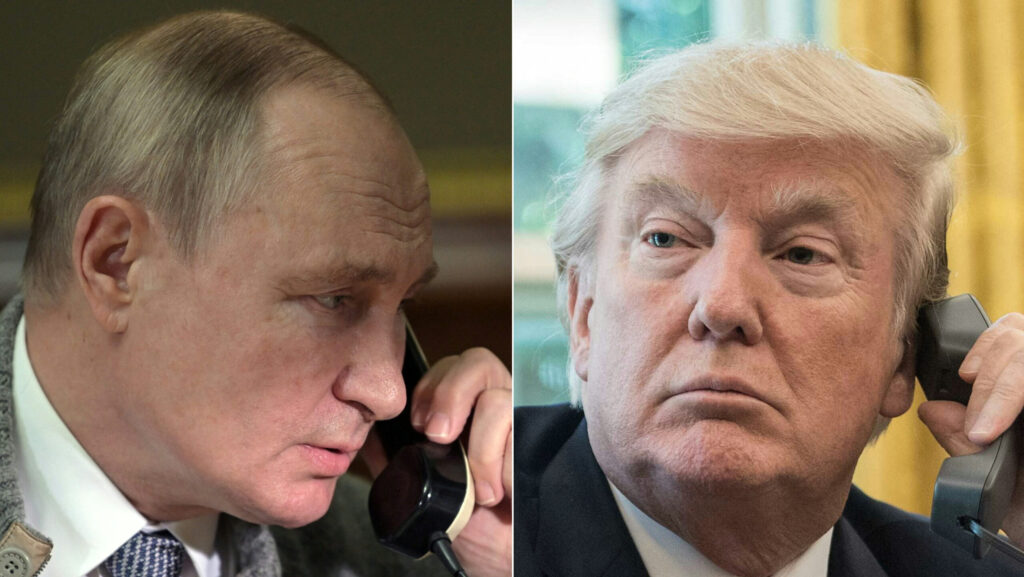
Donald Trump and Vladimir Putin agreed on a partial ceasefire and the immediate launch of a new round of talks to end the war in Ukraine. The current deal applies to energy and infrastructure on both sides. Hungarian Minister of Foreign Affairs and Trade Péter Szijjártó welcomed the news, warning the EU not to undermine the peace process.
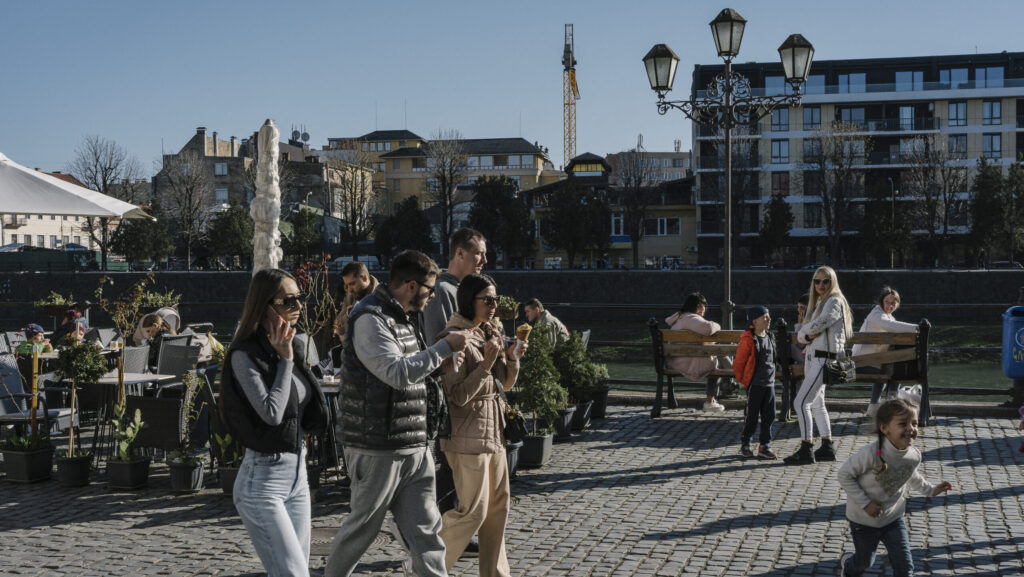
Hungarian Minister of Foreign Affairs and Trade Péter Szijjártó stated that Hungary firmly rejects Ukraine’s fast-track EU accession, especially if it comes at the expense of the Transcarpathian Hungarian community. For the past ten years, Kyiv has gradually curtailed the rights of national minorities, including Transcarpathian Hungarians.

Hungarian officials signal potential legal consequences over USAID funding in Hungary. Government commissioner András László, after meeting US State Department officials, said many projects raise suspicions of political interference and legal actions will be examined. Meanwhile, Fidesz parliamentary leader Máté Kocsis proposed a constitutional amendment allowing the expulsion of dual citizens if their activities threaten Hungary’s sovereignty.
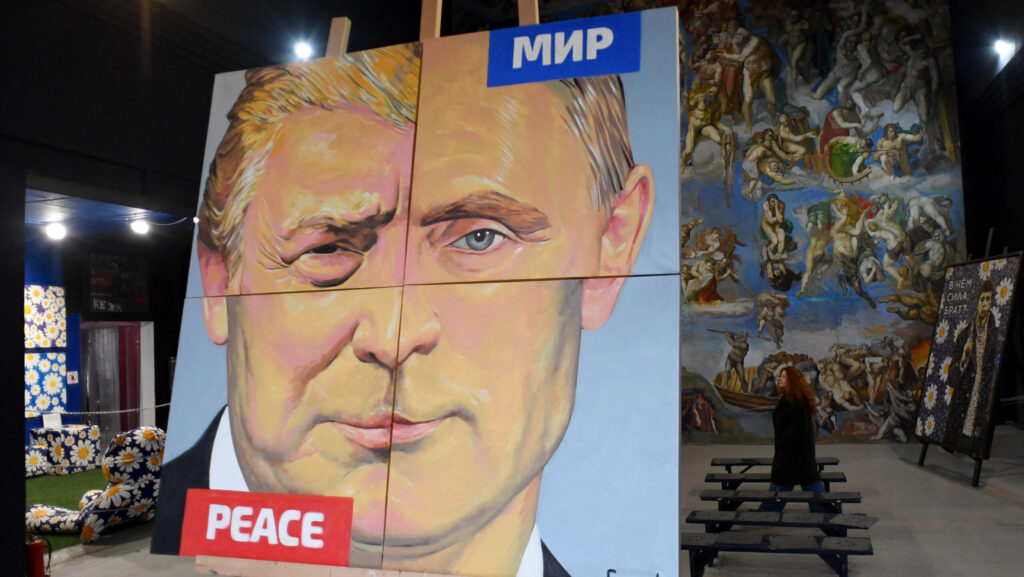
Donald Trump and Vladimir Putin are set to hold talks on Tuesday over a potential ceasefire deal between Ukraine and Russia, which Kyiv has already accepted, while Moscow remains cautious. As peace talks progress, the positions of the involved parties are shifting rapidly: Ukraine no longer views the lifting of Western sanctions on Russia as a red line, and some European leaders are now openly discussing the normalization of relations with Moscow.
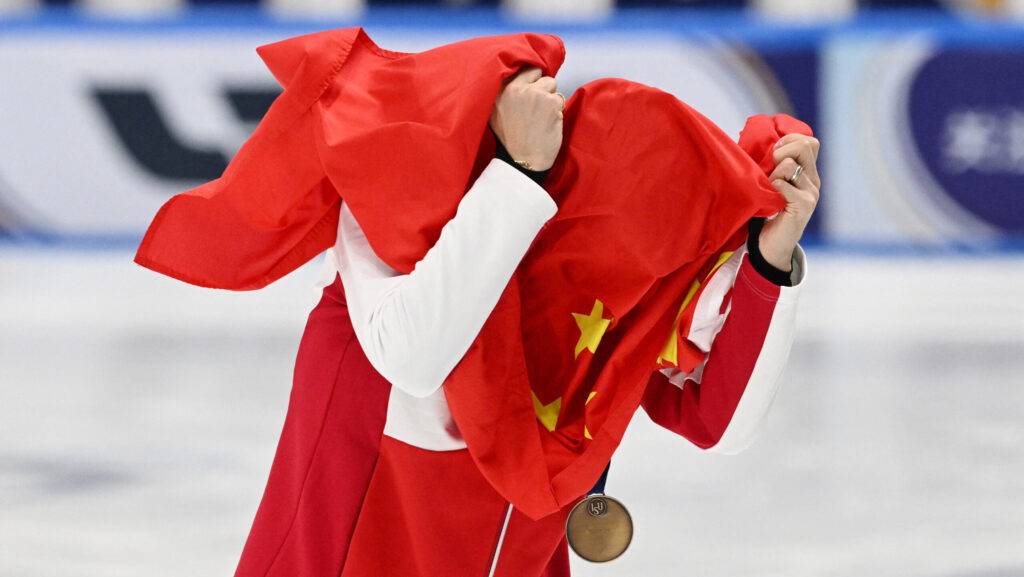
Liu Shaoang secured third place in the 1500m final on the first medal day of the ISU World Short Track Championships in Beijing on 15 March, earning China its first medal at the competition. Along with his brother, Liu Shaolin Sándor, he previously represented Hungary on the world stage, making sports history by winning the country’s first-ever gold medal at the Winter Olympics in 2018.
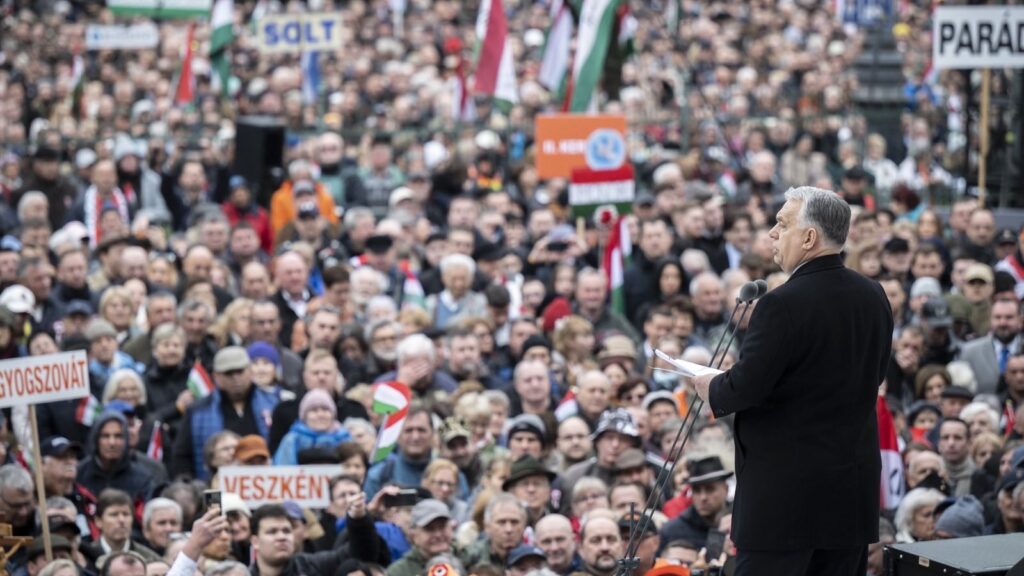
Prime Minister Viktor Orbán emphasized the timeless nature of Hungarian freedom in his speech marking the anniversary of the Hungarian Revolution and War of Independence of 1848–1849, while also delivering sharp criticism of the European Union and its imperial ambitions. He outlined 12 demands for Brussels, including a call for a ‘Union without Ukraine’.
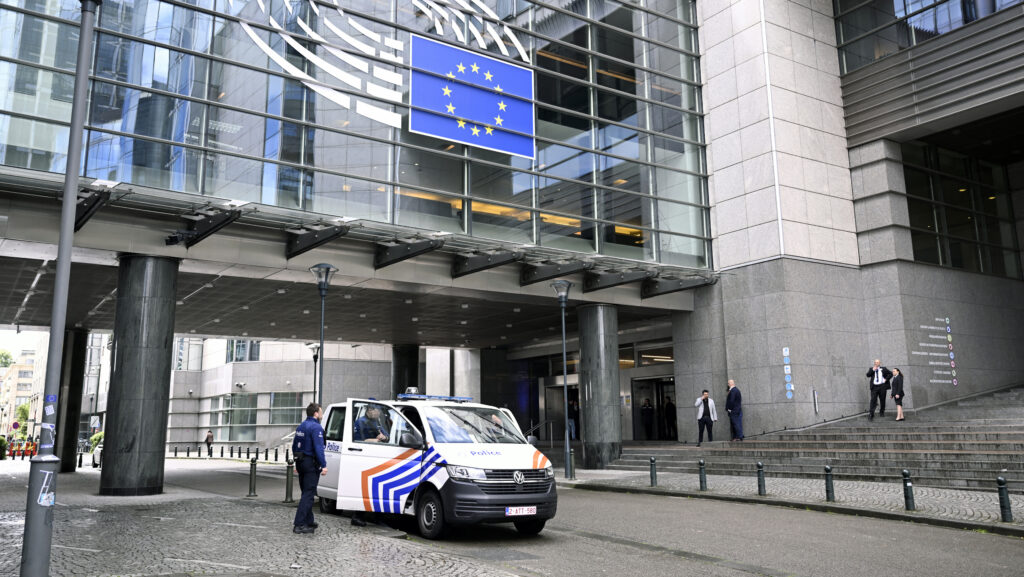
Corruption appears to be among the ‘common European values’ often touted by mainstream parties in the European Parliament as yet another probe shakes the EU’s legislative institution. Initial reports suggest that around 15 former and current MEPs may be involved in a bribery case linked to Chinese telecom giant Huawei.
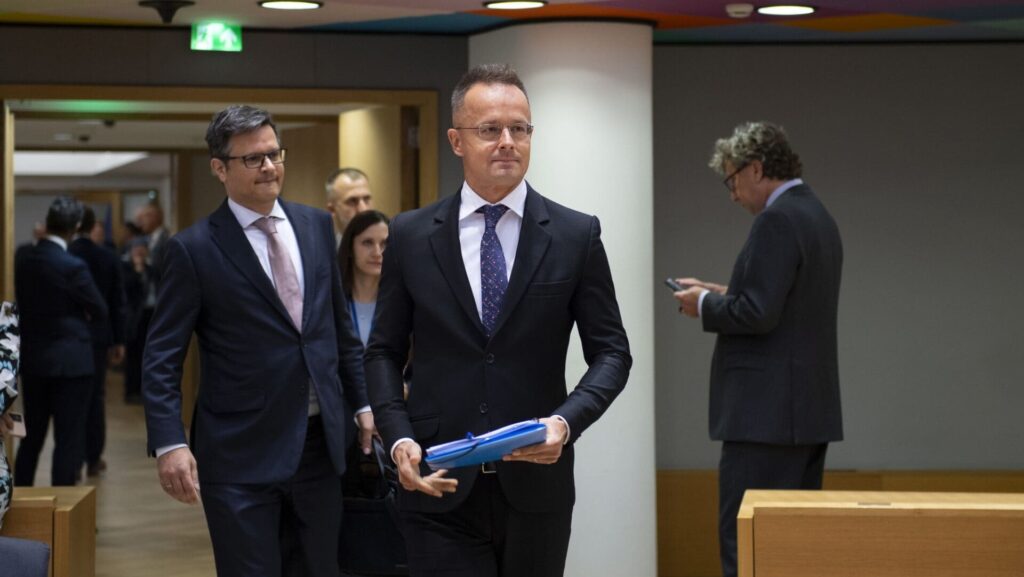
Hungary has lifted its veto on renewing sanctions against Russian individuals after striking a last-minute deal to remove four people from the list. The decision comes as the US intensifies pressure on Russia to accept an immediate 30-day ceasefire deal, which Ukraine has already agreed to.
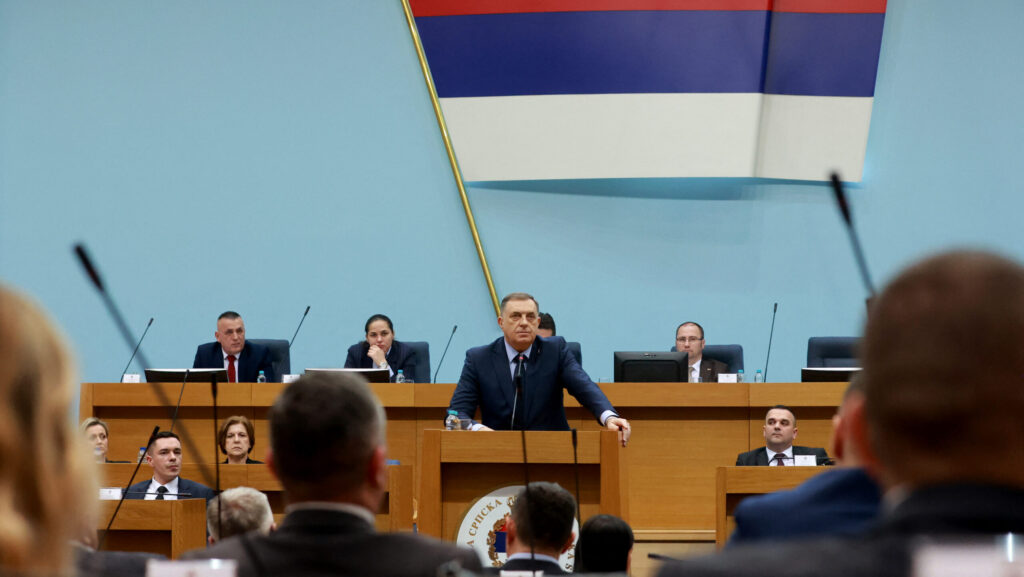
Speaking before the parliament of Republika Sprksa, President Milorad Dodik announced a new constitution aimed at increasing the entity’s independence from Bosnia and Herzegovina’s federal institutions and the high representative. In his speech, Dodik also declared a ‘war for the future’ of Republika Srpska.
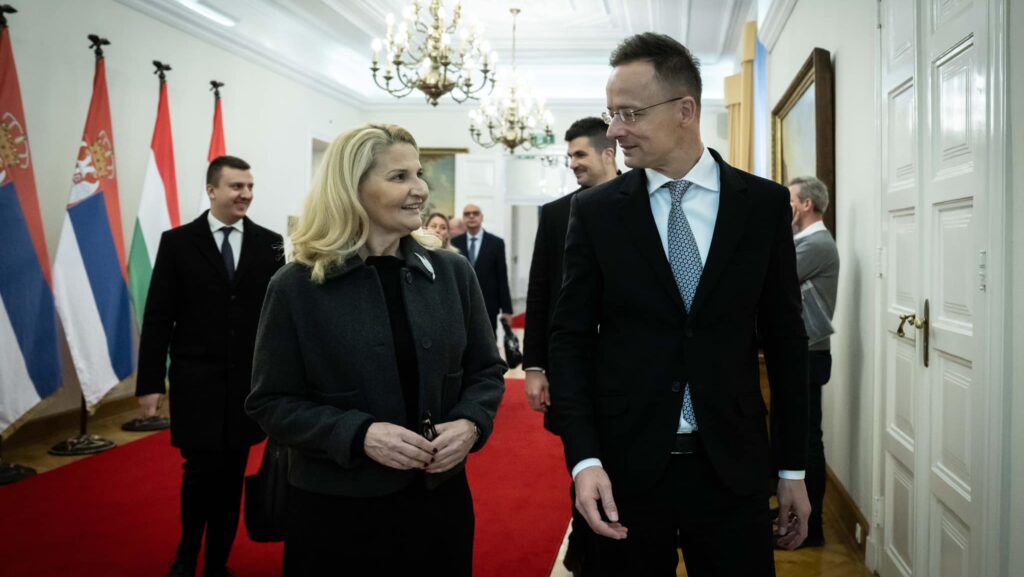
Hungarian Minister of Foreign Affairs and Trade Péter Szijjártó described the ongoing protests in Serbia as an attempted ‘colour revolution’ aimed at destabilizing the region. He further stated that foreign-backed colour revolutions in recent years have all ended in tragedy, expressing gratitude to US President Donald Trump for ending Washington’s policy of meddling in other nations’ domestic affairs.
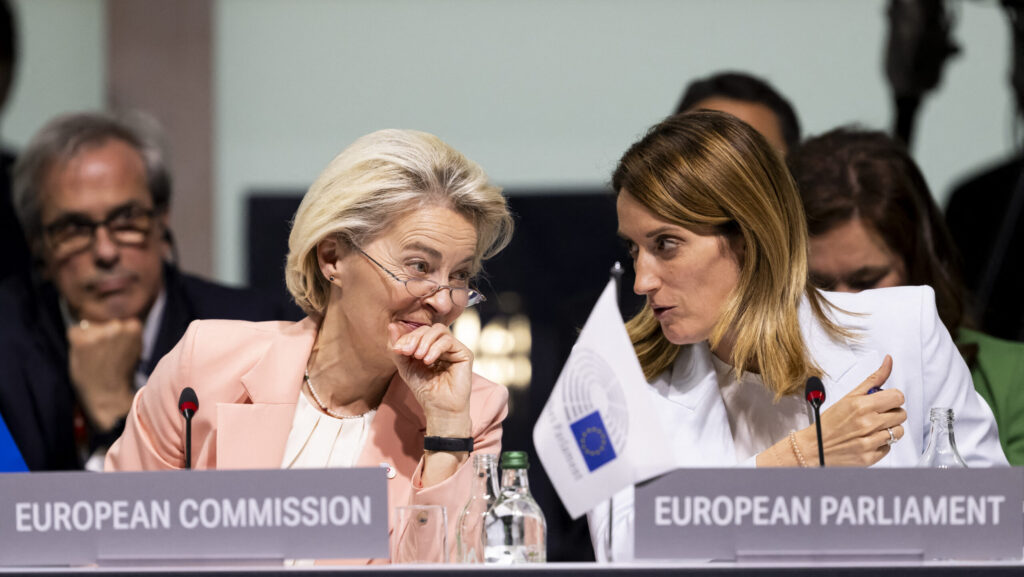
Hungarian Minister of Foreign Affairs and Trade Péter Szijjártó pointed out that the sudden shift of EU leaders on a potential ceasefire in Ukraine is ‘politically ridiculous’ and highlights their lack of credibility. However, it also raises the question of responsibility for Brussels’ failed strategy over the past three years.
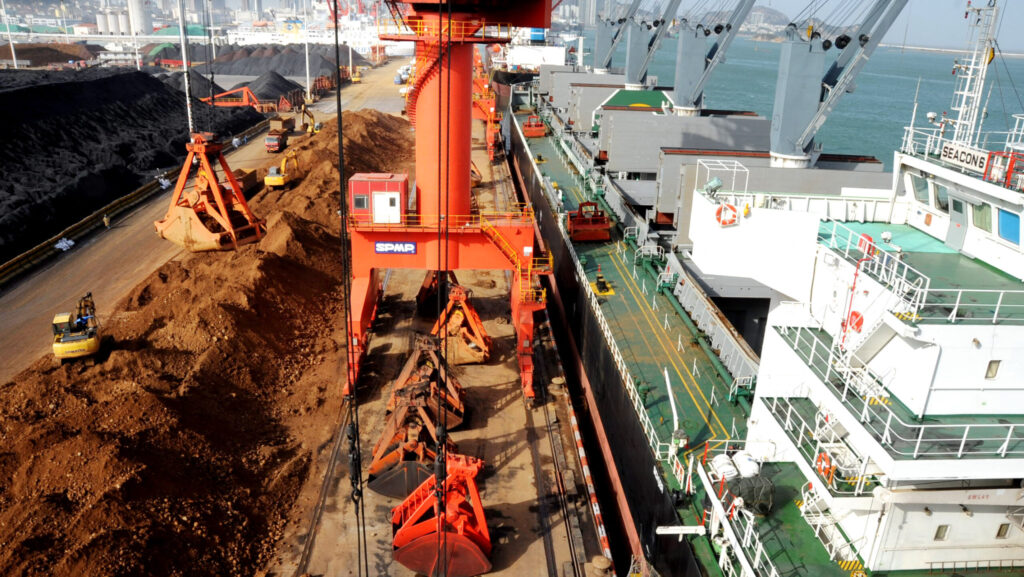
While Ukraine and Greenland dominate the headlines, Donald Trump and his foreign policy team are engaged in multiple negotiations worldwide to secure access to critical mineral reserves. These resources are essential for technological advancement, with China maintaining dominance over much of the global supply chain. For Washington, mineral diplomacy is a matter of strategic survival—one that is set to remain a key priority for the foreseeable future.
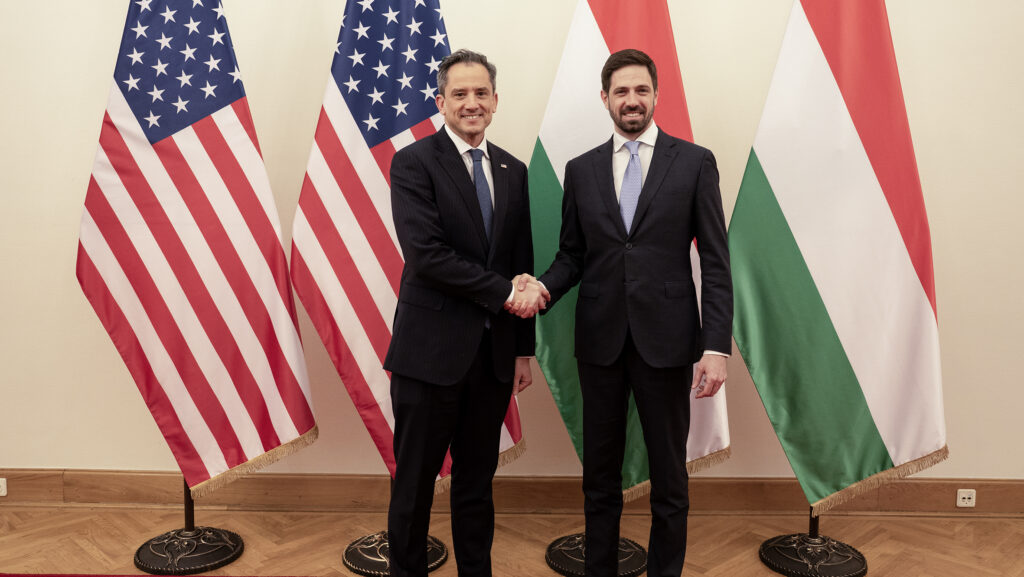
Appointed last week, interim Chargé d’Affaires Robert Palladino was received by Deputy Minister of Foreign Affairs and Trade Levente Magyar on Tuesday to discuss the future of Hungary–US relations. The senior US diplomat also met with American and Hungarian business leaders, emphasizing the promising prospects for economic partnership.
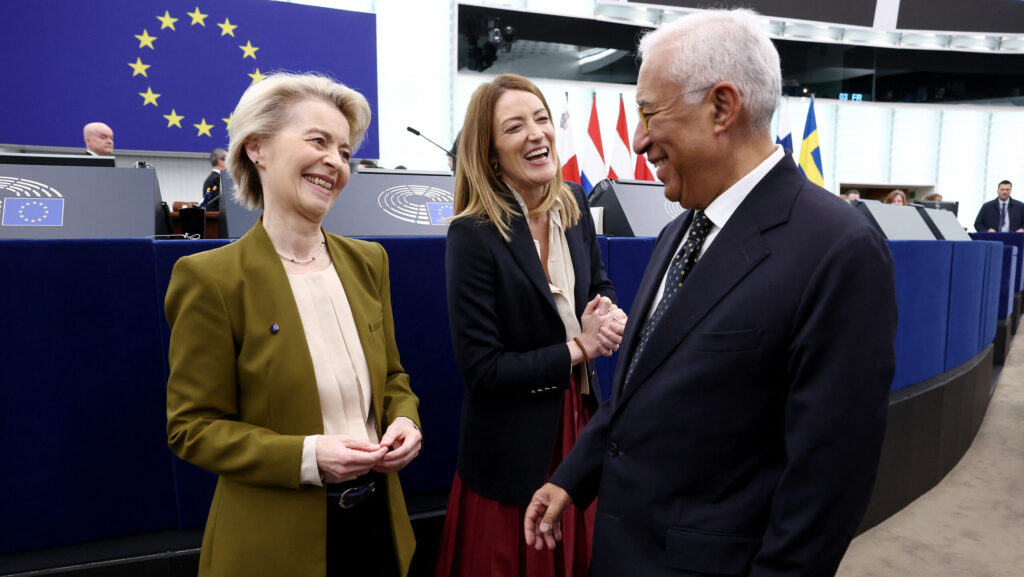
After Kyiv expressed readiness for an immediate ceasefire following US–Ukraine talks in Saudi Arabia, EU leaders issued statements suggesting—or even claiming—that they had always been working toward peace. However, as the lone voice advocating for peace within the EU for a long time, Hungary knows precisely that Brussels has done quite the opposite over the past three years. Our commentary.
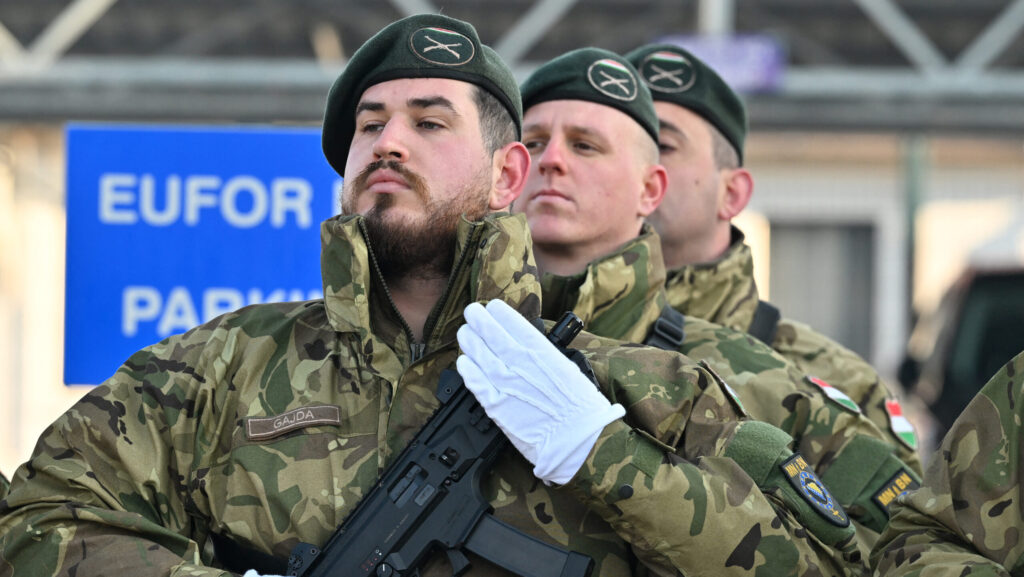
The EU is increasing its number of peacekeepers stationed in Bosnia and Herzegovina as tensions rise at an alarming pace in the Western Balkans. Sarajevo accuses Bosnian Serb leader Milorad Dodik of undermining the country’s constitution following a series of legislative moves after his conviction by a federal court last week. A close ally of Dodik, Viktor Orbán and Hungary now find themselves at the centre of these tensions, locked in a sharp diplomatic standoff with Bosnia.
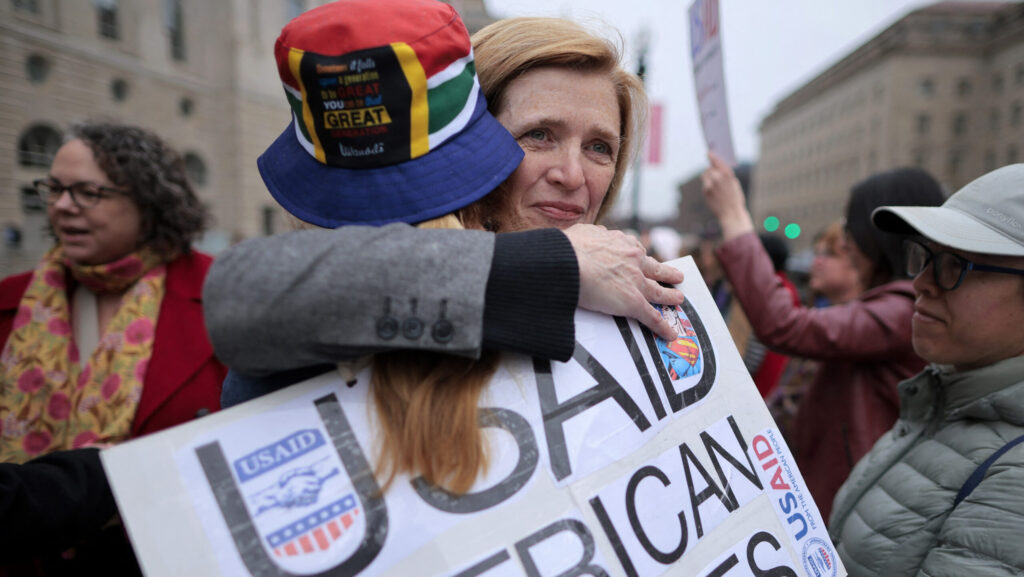
After Secretary of State Marco Rubio announced that the Trump administration is cancelling more than 80 per cent of USAID programmes, the agency’s role as the funder of a vast globalist foreign influence network has effectively come to an end. However, the same forces are now regrouping in Brussels—and Hungary will be ready to confront them.
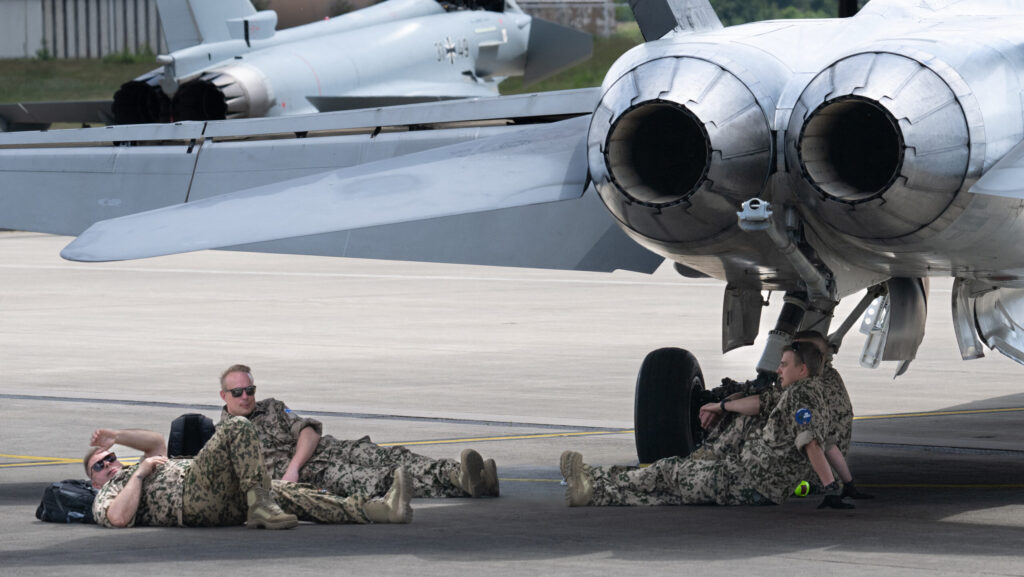
Donald Trump is reportedly considering relocating some 35,000 US soldiers from Germany to Hungary. Viktor Orbán has long advocated for strengthening European defence and establishing a joint European army, while also fully meeting Hungary’s NATO commitments on defence spending. At the same time, Hungary remains the only EU country that shares the United States’ position on Ukraine. But how likely is this plan to materialize?
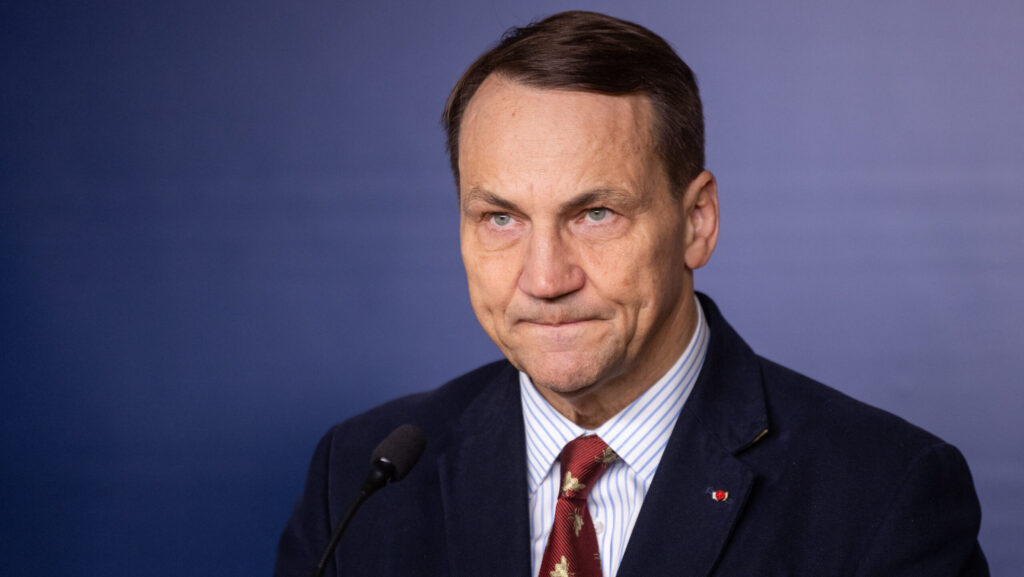
After Viktor Orbán announced that Hungary would hold a public vote on Ukraine’s EU accession, Polish Foreign Minister Radosław Sikorski suggested holding a similar vote across member states on Hungary’s EU membership. However, Hungary is not alone in viewing Kyiv’s accession as a potential threat to the European economy. Polish farmers also fear the collapse of the agricultural sector, and their votes could be decisive in the country’s presidential election in May.
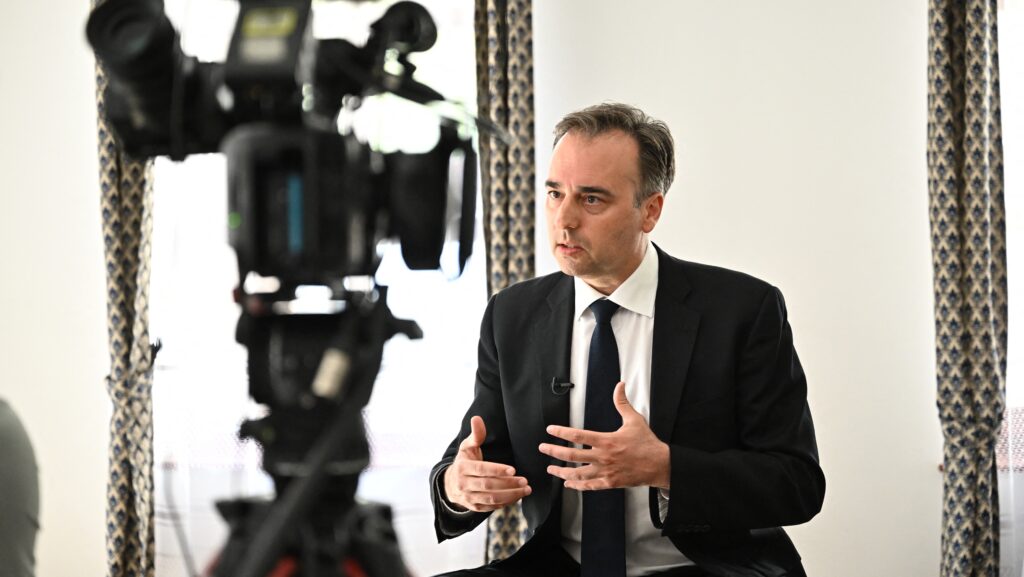
Former US ambassador to Hungary David Pressman continued his smear campaign against his former host country on CNN. However, while speaking to Christiane Amanpour, he accidentally admitted that he viewed Hungary as a ‘battleground between democracy and authoritarianism’ and that his goal was to defeat this perceived authoritarianism—essentially, ousting Viktor Orbán and his government.
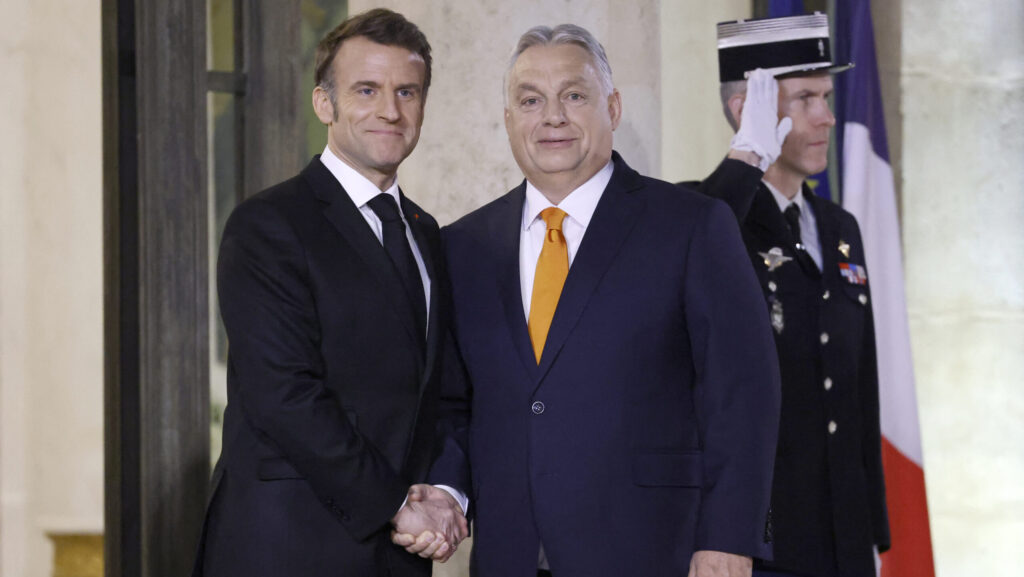
Emmanuel Macron must envy Viktor Orbán for this: a video has gone viral showing a French woman approaching and praising the Hungarian prime minister on the streets of Paris. One cannot help but recall another iconic video—Macron being slapped by a member of the public in the summer of 2021.
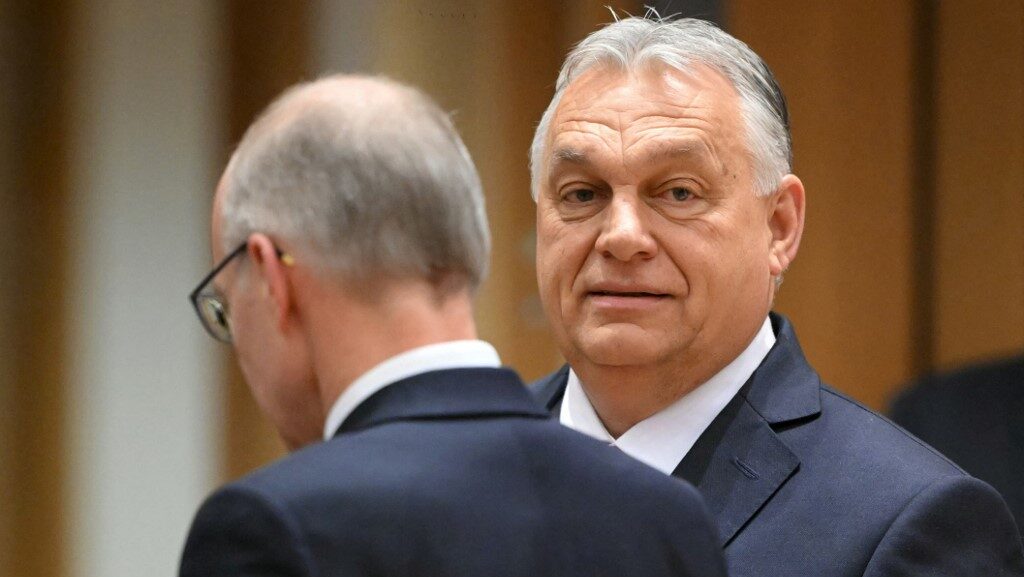
Hungarian Prime Minister Viktor Orbán vetoed joint conclusion on continued military support for Ukraine during Thursday’s emergeny European Council summit. According to Orbán, the European Union is becoming increasingly isolated with its pro-war position, which also undermines peace talks.
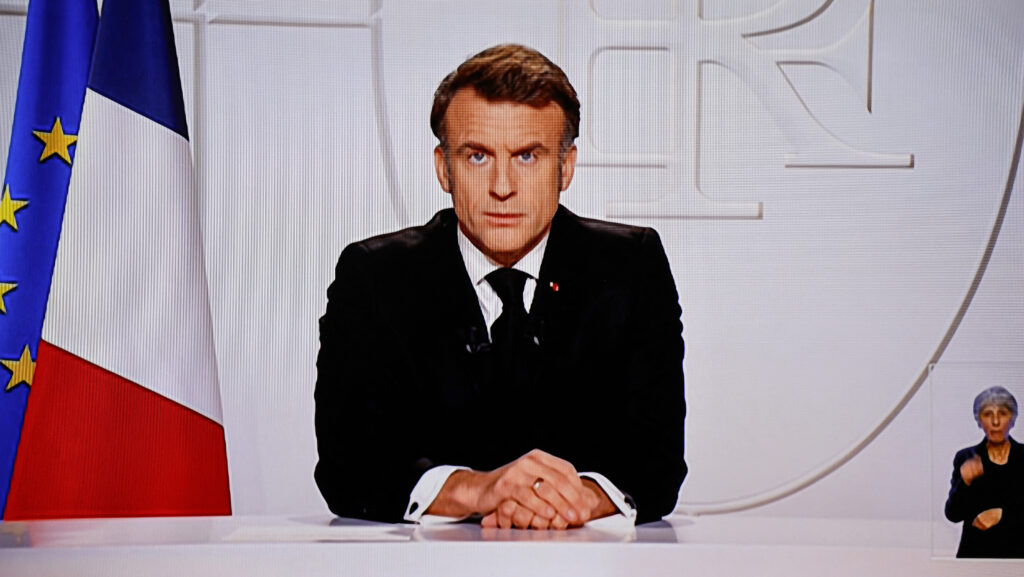
‘Europe is marching itself off a cliff. Hungary must avoid marching with them,’ political director to the Hungarian prime minister Balázs Orbán said in response to French President Emmanuel Macron’s speech on Wednesday. As EU leaders gather in Brussels today, pro-war leaders have doubled down on their rhetoric against peace, threatening to undermine fragile peace talks.
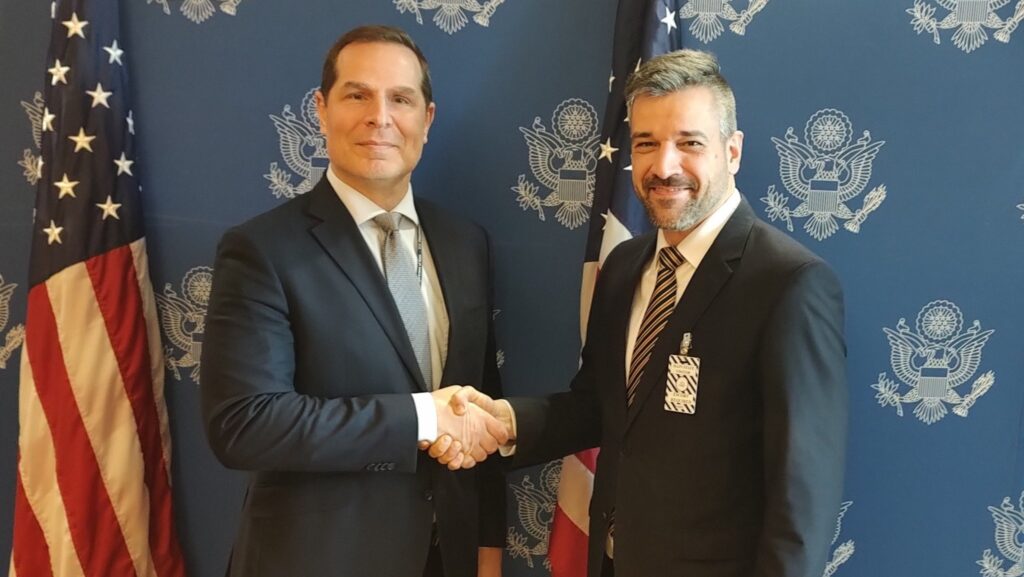
All USAID contracts in Hungary have been terminated after Hungarian Government Commissioner András László met with the agency’s newly appointed head, Peter Marocco, in Washington. László’s task is to investigate USAID funding channelled to Hungarian NGOs and media outlets, aiming to curb foreign influence ahead of the 2026 parliamentary elections.
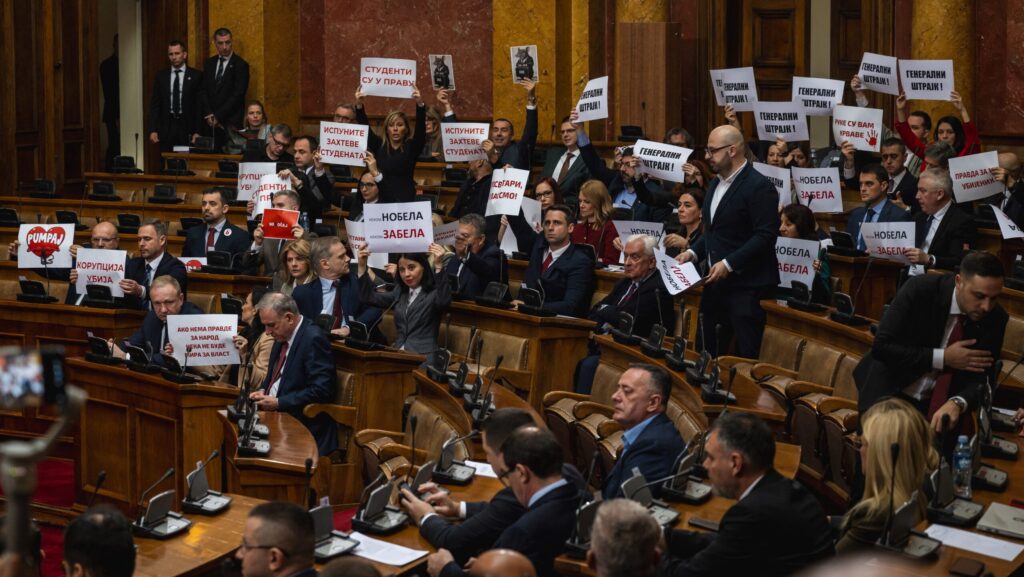
4 March will be considered a dark day in the history of modern Serbian democracy. During the first day of the spring session, opposition politicians threw smoke bombs and flares in the building, sabotaging key reforms regarding months-long anti-government protests. The chaotic events fit in a regional pattern of destabilization efforts concerning patriotic governments, including Hungary and Slovakia.

Hungarian Conservative is a quarterly magazine on contemporary political, philosophical and cultural issues from a conservative perspective.